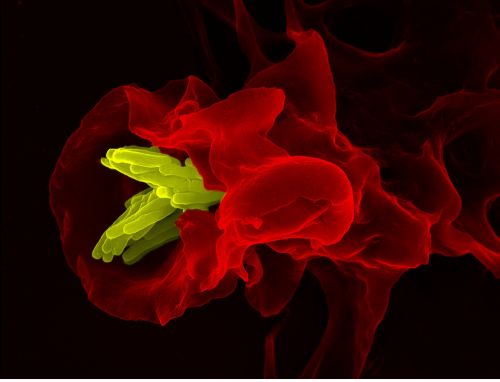Macrophage research in my lab
Macrophages are an amazing cell type. Literally translated as “big eaters”, these cells are found abundantly in nearly every tissue of the body. Typically, macrophages quietly go about their business eating other cells of the body die of natural causes such as old age. As integral members of the innate immune system, macrophages are capable of detecting whether there has been a disruption to normal tissue conditions. Then these cells will collect information from their environment and form a response. Tissue damage, infectious disease agents, and loss of oxygen are just some examples of stimuli that “activate” or “polarize” macrophages.
Macrophages are crucially beneficial in many settings, yet they can also have detrimental activities if they respond improperly. Examples of detrimental activities include hosting, rather than killing, intracellular pathogens and promoting tumorigenesis. In these cases, the ability of macrophages to change their activation status, or polarization, presents an opportunity for therapeutic intervention. Therefore, our research of macrophages centers around developing novel therapeutics to control macrophage polarization.
Image of macrophage "eating" bacteria (credit: unknown...but let me know if you know!)
